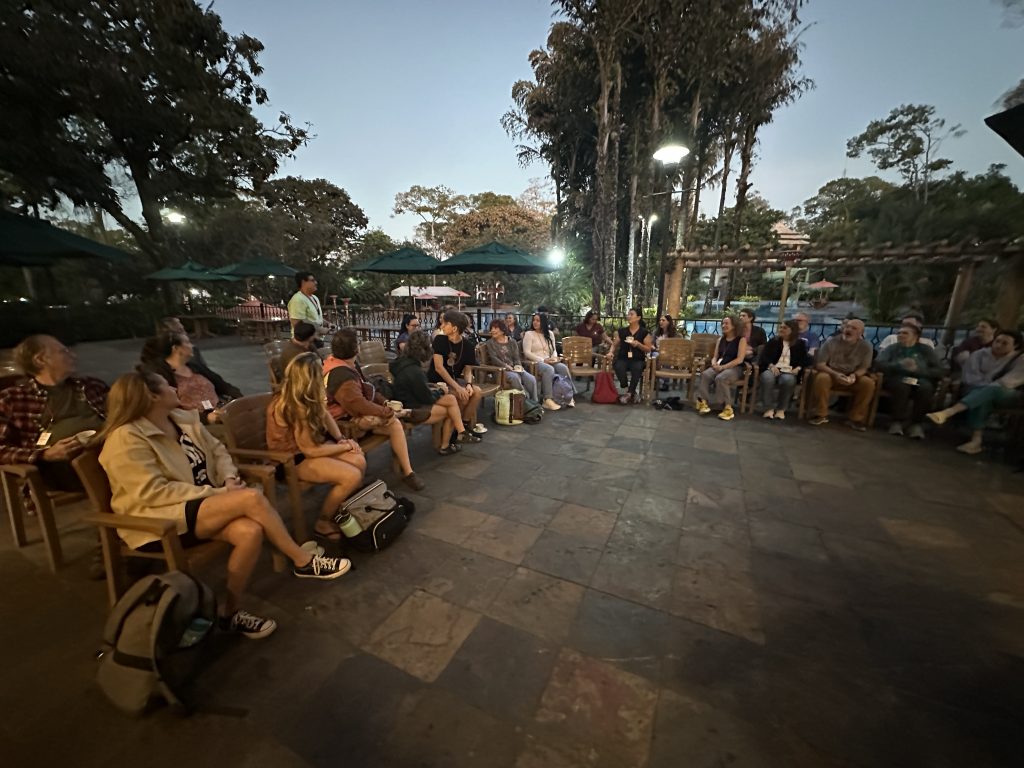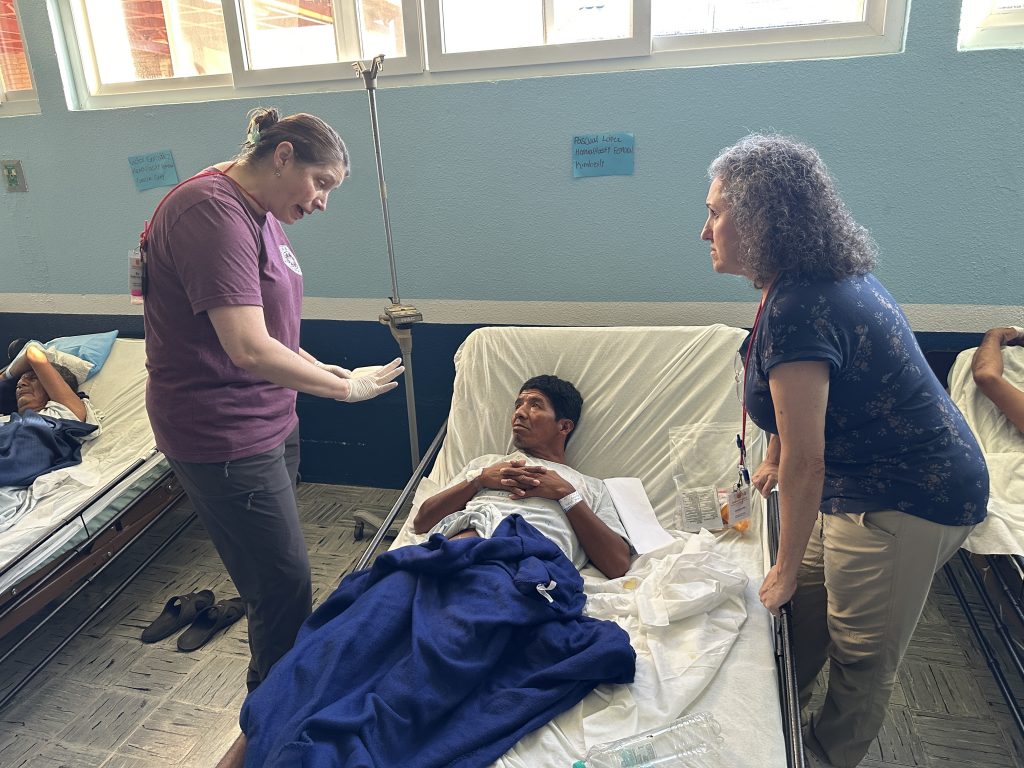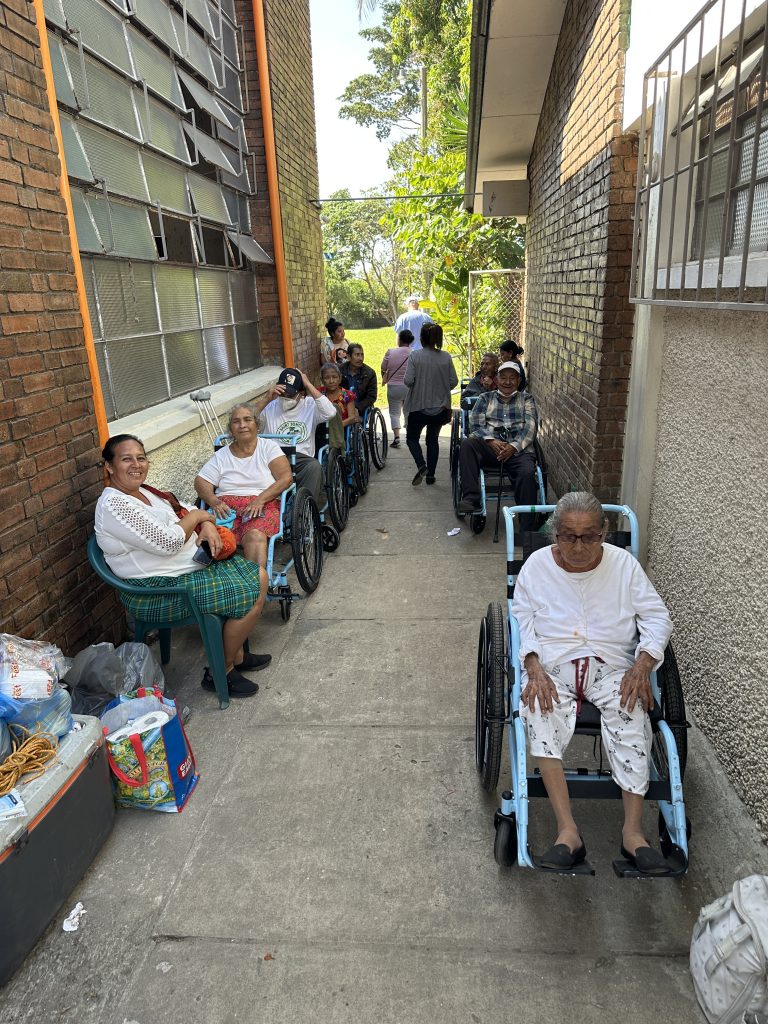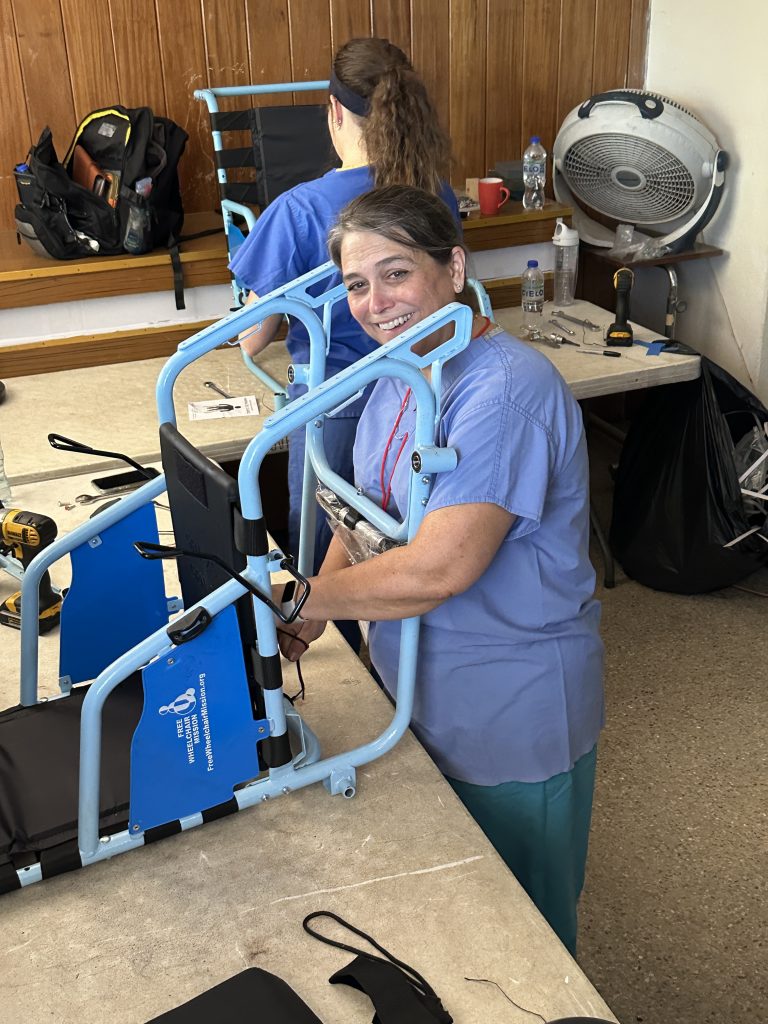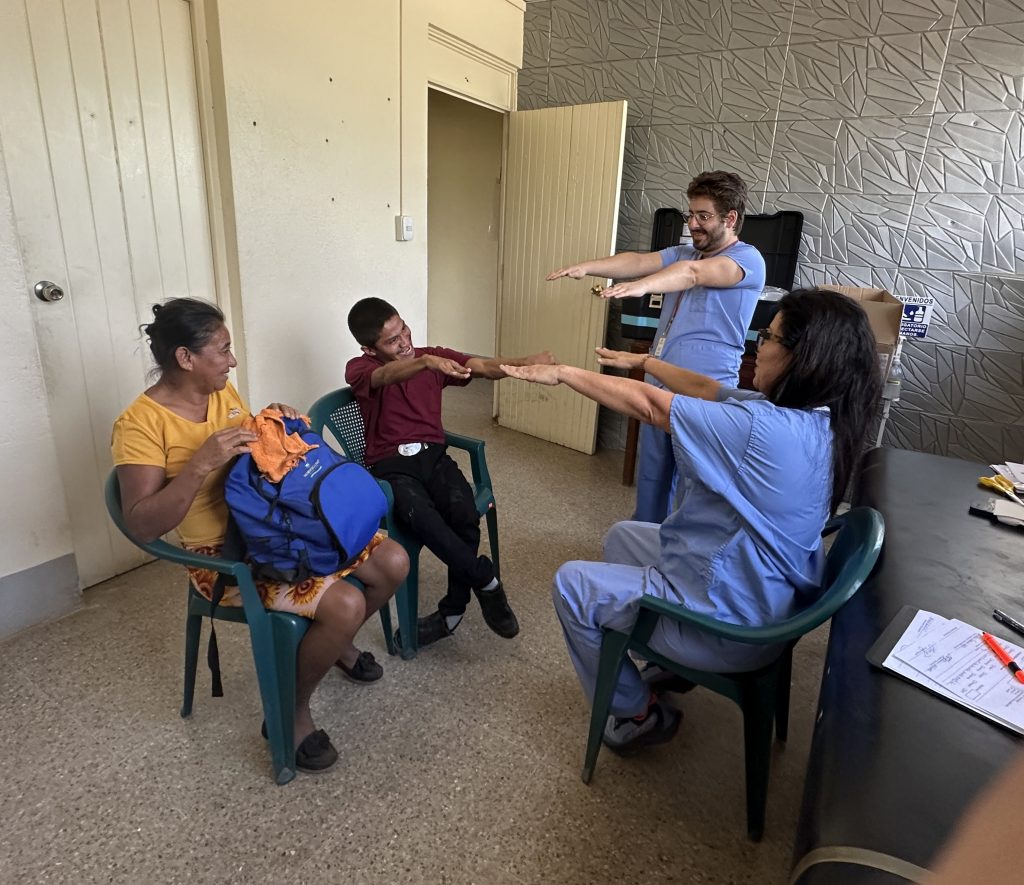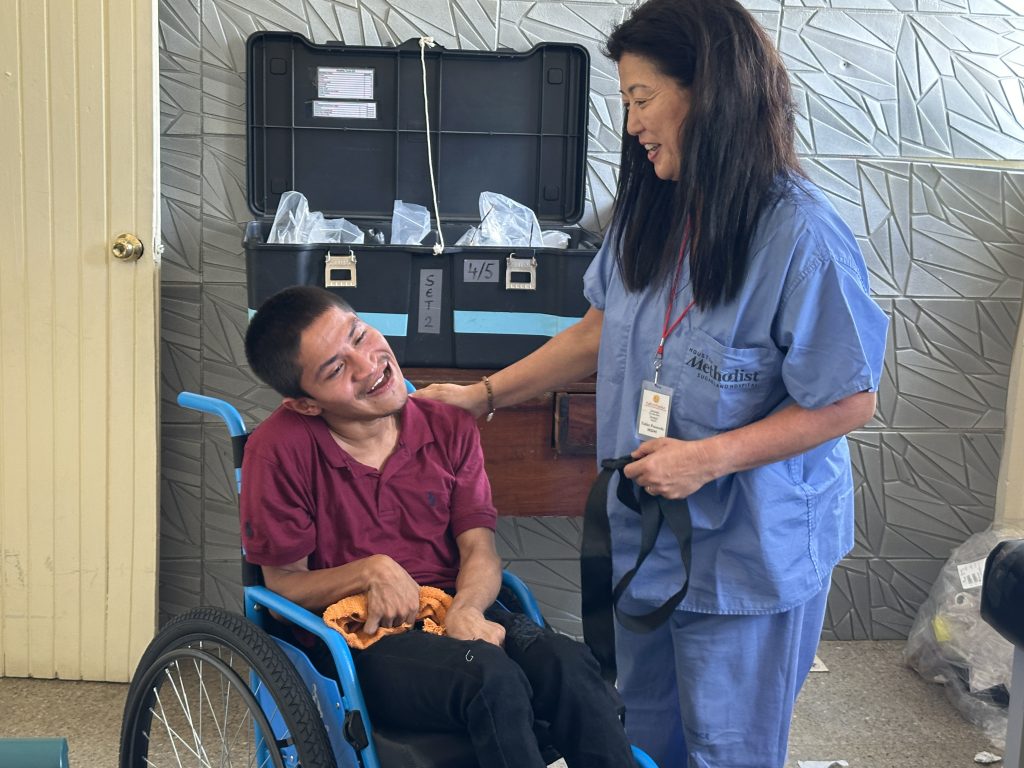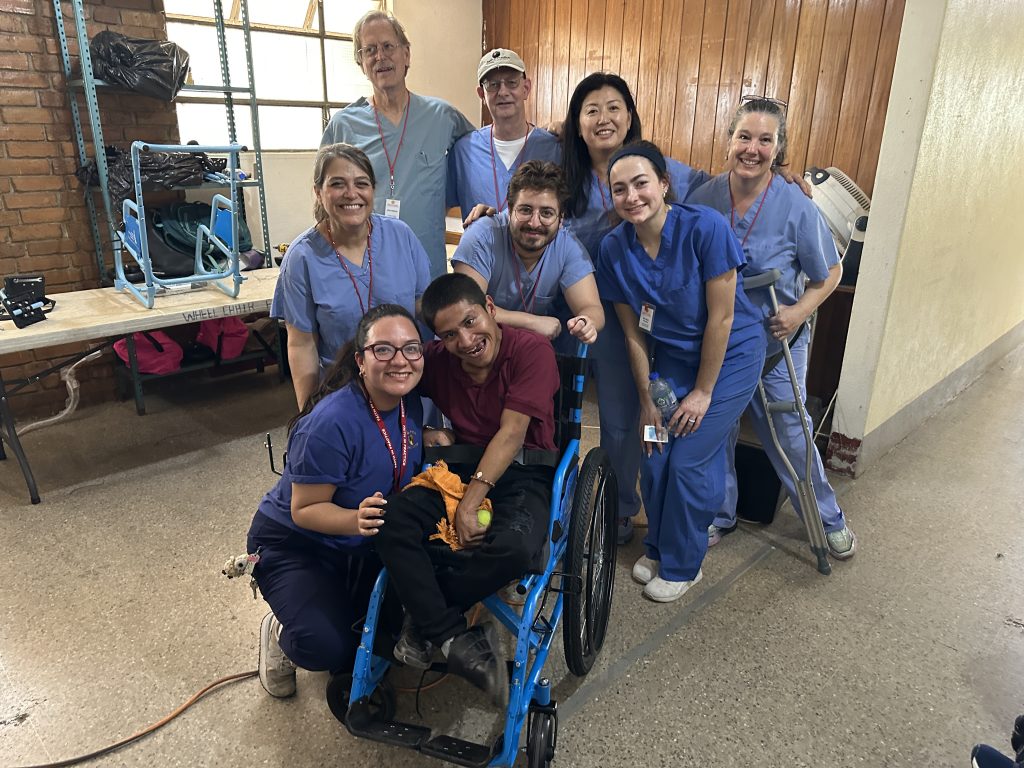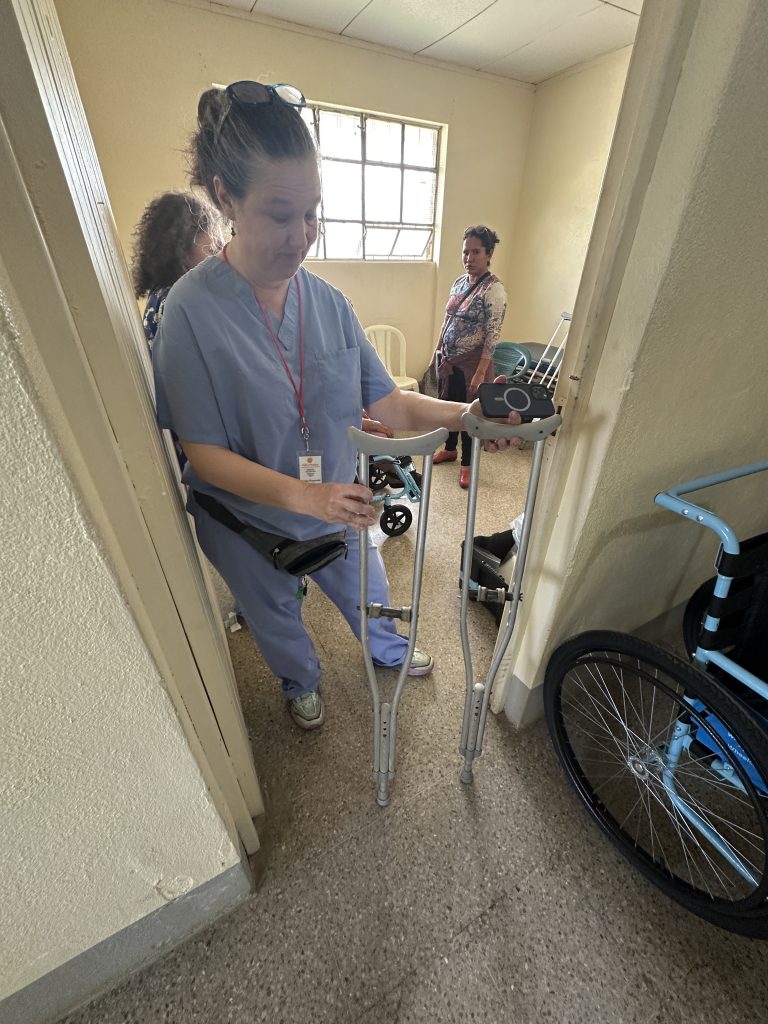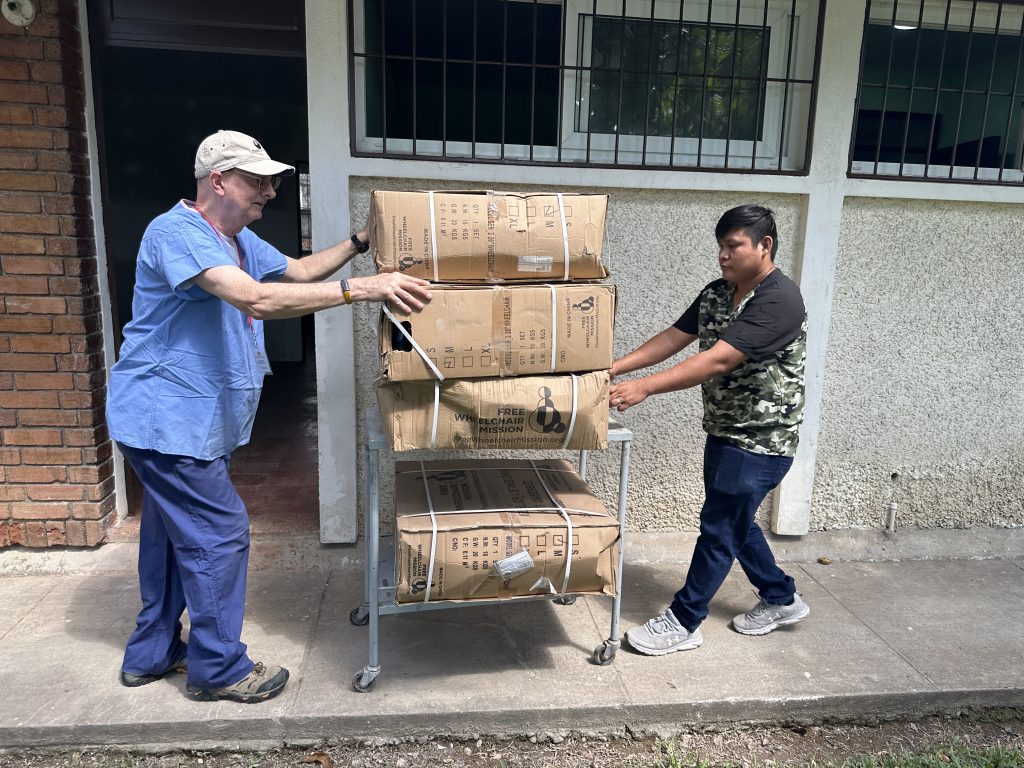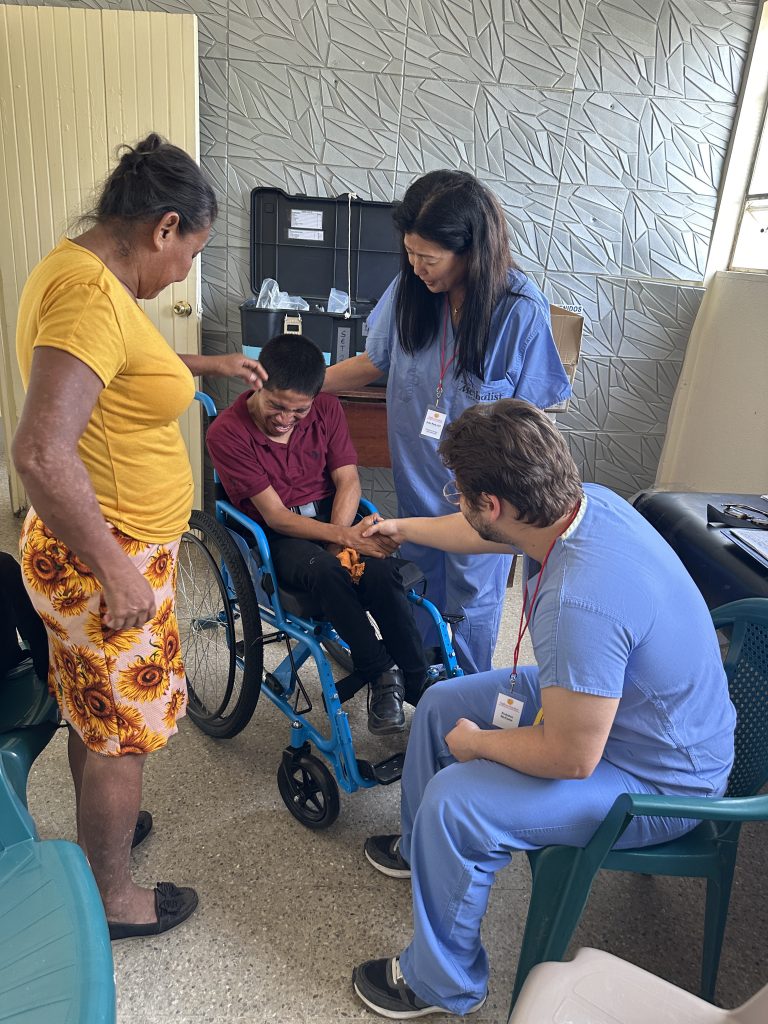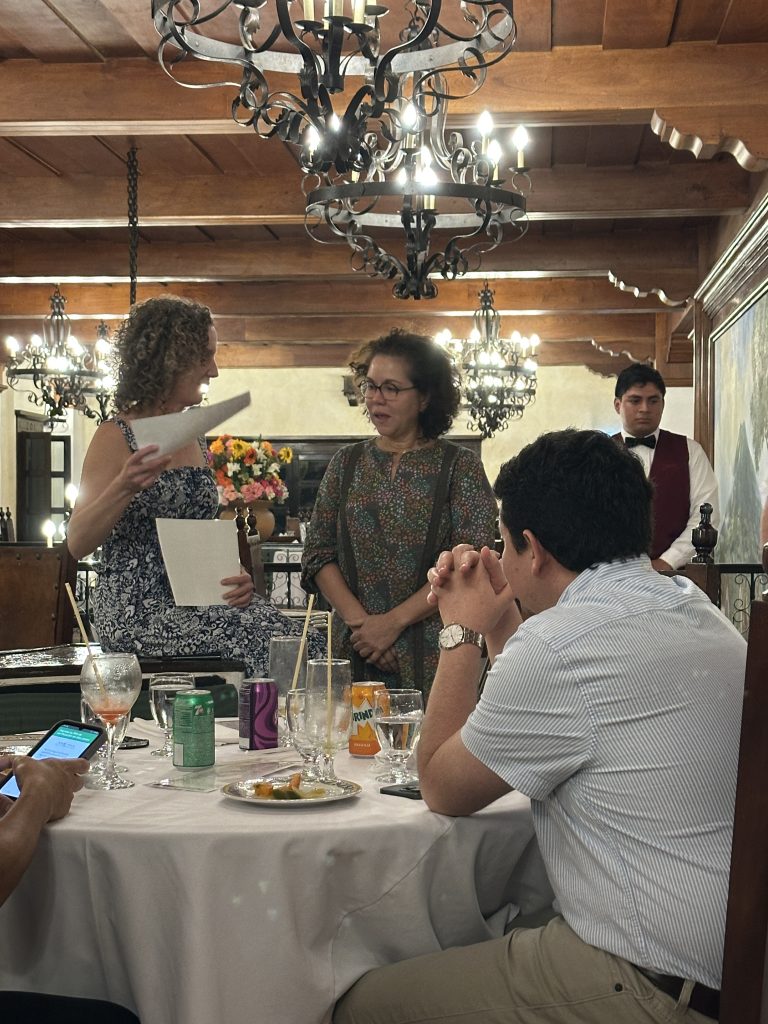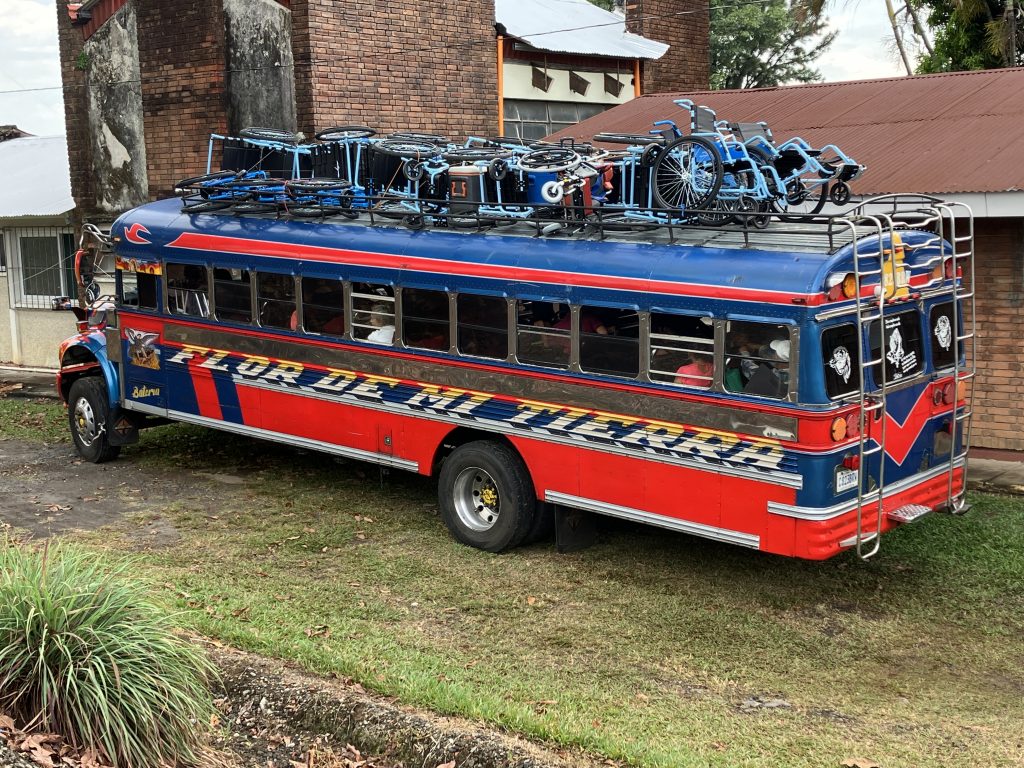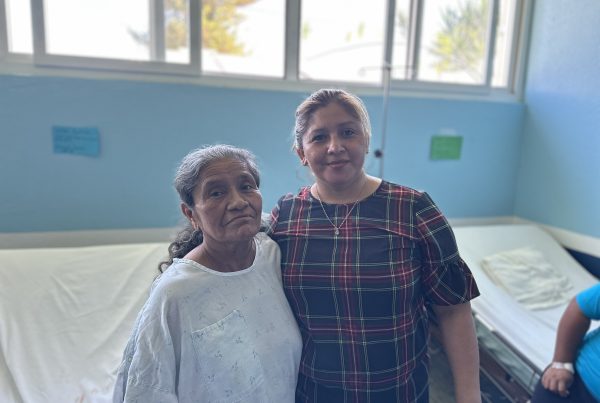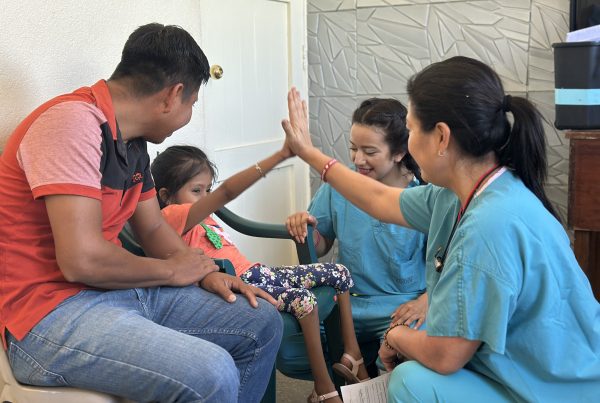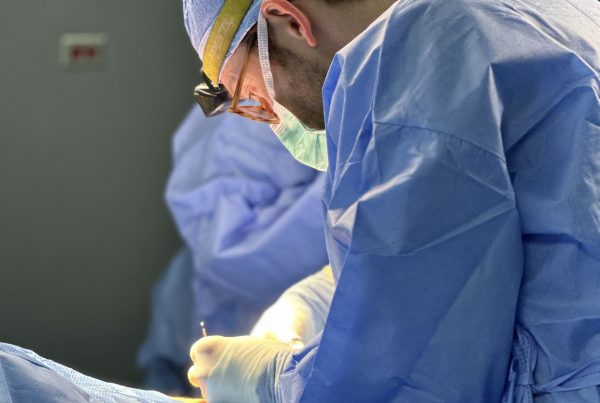Day Five: One Last Day
Today was the final day of the mobility clinic and surgeries. Tomorrow (Friday) will be a very short day where critical staff go and round on the last patients in the wards, but the majority of us will pack, go to devotional, breakfast, then board the bus that will take us to Antigua where we’ll have an afternoon to enjoy the gorgeous city that sits in the shadow of Fuego, Guatemala’s most active volcano.
Before I get to our day, let me tell you about the conversation I had with Dr. Patty Baiza, Faith in Practice’s Inter-Program Medical Director. Dr. Baiza has been with Faith in Practice for 30 years, just about as long as the organization has existed.
In 2005 Dr. Baiza started a program for cervical cancer prevention with Dr. Peter Thompson. Cervical cancer used to be the number one cancer for women in Guatemala. Through their hard work, determination, and tireless efforts to train doctors, nurses, and medical staff to identify and treat cervical cancer, it has dropped to the second most common cancer affecting women. She’s a pretty incredible person.
Dr. Baiza stressed the importance of the medical teams like ours that travel to Guatemala every year.
“When I was working in the national hospital, there was a very long list of people who were waiting for surgery,” said Dr. Baiza. “Many people on the list died before getting their surgery.”
With the support of surgical teams like the Lima/Wagen 836 Surgery Team, more people are able to receive the surgeries they need. Of course, the list is still long, and there are still a lot of people waiting for different specialties, like orthopedics and neurology.
“The medical teams that come are a blessing for the people of Guatemala. They’re a blessing for the country,” said Dr. Baiza. “Thank you so much for coming, for leaving your country and families, and paying to come and help other patients. You make a difference.”
On to the day.
This morning, I met a patient named Pascual who was recovering in the men’s ward, and to my delight he spoke English. Pascual was a patient of Dr. Kim Vanderveen, who had an infection from a hernia repair he had last year. The complication prevented Pascual from working, and he was anxious to heal so he could get back to work and provide for his family: a wife, two daughters, and a son.
“I have been in trouble, because I have this condition, and I’ve been unable to work,” said Pascual. “I hope to heal, and that everything is better so I can go work. I have to feed my family; I have kids.”
Among the men I have spoken to this week, many have the same sentiment. As men are the primary providers in traditional Guatemalan families, everyone suffers when they are sick and cannot work.
When I was in the PACU yesterday, I watched as a man groggily woke up after a successful surgery. Sue, a PACU nurse, was by his side. The first question he asked was, “When I go back to work?”
It’s a harsh reality that hits hard. With such a broken healthcare system, any serious ailment left untreated will put people out of work and deeper into poverty.
On the mobility clinic side of the hospital, the team met an entire bus full of patients needing mobility assistance. One of the patients was a 24-year-old young man named Manuel.
Manuel was born with cerebral palsy and a cleft palate. Although doctors fixed his lip, they did not fix his palate, so he is only able to form a few words, instead communicating with hand signals and grunts. But he is cognitively aware and communicative.
When his new wheelchair rolled into the exam room, Manuel let out a shout of joy. Julie helped him into the chair, and he settled in. God bless you, he signaled to Julie, and he wiped tears from his eyes.
After Julie answered a few questions from Manuel’s aunt, who accompanied him on the trip to the hospital, Manuel is ready to go. Julie led the room in a prayer, finishing with, “We pray for an amazing life for Manuel.” He’s an amazing guy, and perfect in God’s eyes.
As Julie rolled Manuel out of the exam room, they stopped by the team who was assembling wheelchairs. There were hugs and high fives, and I took a final picture of the group.
Slowly through the afternoon, surgeries wound down and the mobility clinic wrapped up. As we tallied numbers for the week, the numbers are impressive: Our team completed 77 surgeries and an additional five procedures, and helped 138 patients in the mobility clinic over the span of five days. More than 200 lives changed. It’s an indescribable feeling.
Tonight we get to dress up for a fancy dinner to celebrate and give thanks for another successful mission. (There’s also a rumor that there’s karaoke after dinner!) The outcomes were all good, and we touched so many lives beyond the number of patients seen this week. Families regained loved ones. Communities were strengthened.
What did we learn? Missionary work is loving and serving others before yourself, first and foremost Jesus. I observed this on so many levels of our trip, not just on our team, but through the Faith in Practice staff and volunteers, community leaders who brought in scores of patients needing care, and the families who took care of sick loved ones.
Serving Christ means embodying His love through our actions, and this mission was a profound reflection of that calling. In every patient treated, wheelchair assembled, and prayer shared, we saw the hands and feet of Christ at work. Jesus taught us to love our neighbors as ourselves, and this week we witnessed how that love transcends borders, languages, and circumstances.
As we return home, let us carry the lessons of humility, service, and compassion with us, remembering that to serve others is to serve Him. May our efforts inspire us all to continue answering Christ’s call to love and serve, wherever we are.
See you next year, Guatemala.
Susan Orhon
Team Blogger & Photographer


